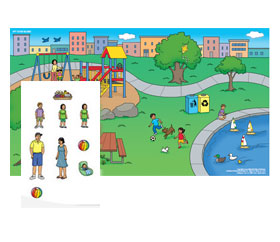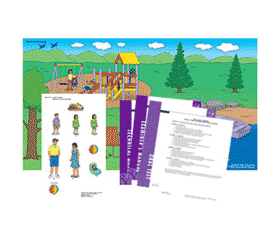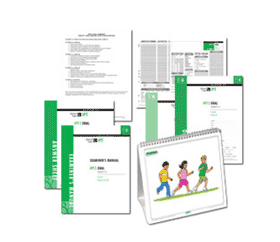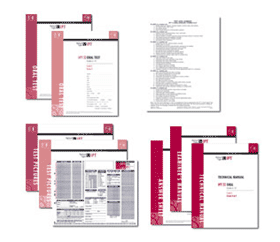IPT Oral English
Purpose
- To quickly and accurately evaluate English learners’ oral proficiency in English
- To test language minority students for initial identification and redesignation
- To provide placement information for instructional programs
- To monitor progress and growth in English language development
- To provide diagnostic information for program planning
Administration
- Quick, accurate, and easy to administer
- Administered individually and scored as students are being tested
- Sample items at the beginning of the test designed to help students become comfortable with test format
- Examiner script and acceptable student responses are printed in the test booklet, or online if testing using the OnlineIPT
- Remote testing is available for all OnlineIPT tests
Features
- IPT Early Childhood and the Pre-IPT are designed for the preschool child who is not used to taking tests, the tests center around a story, giving young students a low-anxiety context in which to demonstrate their language abilities
- IPT I and II English: Alternate forms for pre- and post-testing; either form may be used for initial identification or redesignation
- IPT II: Also normed on sixth graders; convenient for middle schools with grades 6-8
- Written and normed according to American Psychological Association (APA) standards
- Up-to-date norms reflect current population of test-takers
- Aligned to TESOL standards
- Comprehensive assessment of listening and speaking skills—assesses vocabulary, comprehension, syntax, and verbal expression
- Assesses BICS and CALP
Scoring
- Immediate results—no outside scoring necessary; no complicated formulas to compute
- Raw scores, IPT Proficiency Levels, and Designations
- Proficiency Levels: Beginning, Early Intermediate, Intermediate, Early Advanced, and Advanced
- Designations: Non-, Limited, and Fluent
- Standardized scores (scaled scores, percentiles, NCEs) for flexible score use
- Diagnostic profile to evaluate students’ strengths and weaknesses relative to other students scoring at the same test level
- Ideal for placement into ELD programs such as Carousel of IDEAS/Champion of IDEAS





